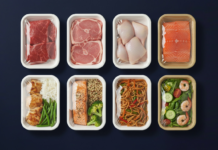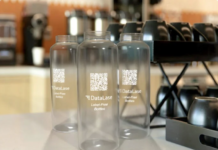
The government of India on 28 June notified a ban on manufacture, import, stocking, distribution, sale and use of identified single use plastic items, which have low utility and high littering potential, all across the country from 1 July 2022.
“In line with the clarion call given by Hon’ble Prime Minister of India, Shri Narendra Modi, to phase out single use plastic items by 2022, Ministry of Environment, Forest and Climate Change, Government of India notified the Plastic Waste Management Amendment Rules, 2021, on 12 August 2021. Carrying forward the spirit of ‘Azadi ka Amrit Mahotsava’, a defining step to curb pollution caused by littered and unmanaged plastic waste is being taken by the country. India will ban manufacture, import, stocking, distribution, sale and use of identified single use plastic items, which have low utility and high littering potential, all across the country from July 1, 2022,” the Ministry of Environment, Forest and Climate Change said in its statement.
The adverse impacts of littered single use plastic items plastic on both terrestrial and aquatic ecosystems, including in marine environment are globally recognized, the ministry said. Addressing pollution due to single use plastic items has become an important environmental challenge confronting all countries.
In the 4th United Nations Environment Assembly held in 2019, India piloted a resolution on addressing single-use plastic products pollution, recognizing the urgent need for the global community to focus on this very important issue. The adoption of this resolution at UNEA 4 was a significant step, the ministry said. In the recently concluded 5th session of United Nations Environment Assembly in March 2022, India engaged constructively with all member states to develop consensus on the resolution for driving global action on plastic pollution.
Big list of banned items
The Government of India has taken resolute steps for mitigation of pollution caused by littered single use plastics, the ministry said. The list of banned items includes: ear buds with plastic sticks, stirrers, plastic sticks for balloons, plastic flags, candy sticks, ice-cream sticks, polystyrene (thermocol) for decoration, plastic plates, cups, glasses, cutlery such as forks, spoons, knives, straw, trays, wrapping or packing films around sweet boxes, invitation cards, cigarette packets, and plastic or PVC banners less than 100 micron in thickness.
Plastic bags less 120 microns banned from 31 December 2022
The Plastic Waste Management Amendment Rules, 2021, also prohibit manufacture, import, stocking, distribution, sale and use of plastic carry bags having a thickness less than 75 microns with effect from 30 September, 2021, and having a thickness less than thickness of one hundred and twenty microns with effect from the 31st December, 2022.
The Ministry of Environment, Forest and Climate Change also notified the Guidelines on Extended Producers Responsibility on plastic packaging as Plastic Waste Management Amendment Rules, 2022 – on 16 February 2022. Extended Producer Responsibility (EPR) is responsibility of a producer for the environmentally sound management of the product until the end of its life. The guidelines will provide framework to strengthen circular economy of plastic packaging waste, promote development of new alternatives to plastic packaging and provide next steps for moving towards sustainable plastic packaging by businesses.
Capacity building exercises
Capacity building workshops are being organized for MSME units to provide them technical assistance for manufacturing of alternatives to banned single use plastic items with the involvement of CPCB/SPCBs/PCCs along with Ministry of Small Micro and Medium Enterprises and Central Institute of Petrochemicals Engineering (CIPET) and their state centers. Provisions have also been made to support such enterprises in transitioning away from banned single use plastics.
The Government of India has also taken steps to promote innovation and provide an ecosystem for accelerated penetration and availability of alternatives all across the country, the ministry said.
For effective enforcement of the ban on identified items from 1 July 2022, national and state level control rooms will be set up and special enforcement teams will be formed for checking illegal manufacture, import, stocking, distribution, sale and use of banned single use plastic items. States and Union Territories have been asked to set up border check points to stop inter-state movement of any banned single use plastic items.
App for public participation in waste management
The CPCB Grievance Redressal App has been launched to empower citizens to help curb plastic menace. For wider public outreach, PRAKRITI – mascot was also launched on 5 April.
According to the ministry, the government has been taking measures for awareness generation towards elimination of single use plastics. The awareness campaign has brought together entrepreneurs and startups, industry, central, state and local governments, regulatory bodies, experts, citizens organizations, R&D and academic institutions.
Industry expects huge impact of the ban
The All India Plastic Manufacturers Association (AIPMA) has warned that the move could leave about 88,000 units bankrupt. “Based on government data, about 88,000 units are engaged in the manufacturing of single-use plastic in the country. These units employ about 1 million people and contribute to exports worth Rs 25,000 crore,” MoneyControl quoted Jayesh Khimji Rambhia, co-chairman of the environment committee of AIPMA as saying.
The impact of the ban will be felt across the industries. Fast Moving Consumer Goods (FMCG) makers, the aviation industry and quick service restaurants will bear the brunt, Rambhia said.
Given the huge impact on the industry of the expected closure of single-use plastic makers, AIPMA is urging the government to offer some compensation to micro, small and medium enterprises engaged in the trade and also work towards their rehabilitation, MoneyControl reported.
Many expected that the industry’s various plea’s on the single use plastic ban may cause a postponement but the government of India has proceeded with this well-in-time notified ban. Of course tweaking and fine tuning may be needed, but even the mainstream media has understood that some of the ‘so-called facts’ of the plastic based industries including packaging need closer scrutiny.
IndiFoodBev — authentic, impactful and influential
An English-language food and beverage processing and packaging industry B2B platform in print and web, IndiFoodBev is in its third year of publication. It is said that the Indian food and beverage industries represent approximately US$ 900 billion in revenues which implies more than 20% of the country’s GDP. Eliminating the wastage on the farmside can help to deliver more protein to a higher number of the population apart from generating sizable exports. The savings in soil, seeds, water, fertilizer, energy and ultimately food and nutrition could be the most immense contribution that country is poised to make to the moderation of climate change.
To improve your marketing and grow sales to the food and beverage processing and packaging industry, talk to us. Our research and consulting company IppStar [www.ippstar.org] can assess your potential and addressable markets in light of the competition. We can discuss marketing, communication, and sales strategies for market entry and growth.
Suppliers and service providers with a strategy and budget for targeted marketing can discuss using our hybrid print, web, video, and social media channels to create brand recognition linked to market relevance. Our technical writers are ready to meet you and your customers for content.
The second largest producer of fruit and vegetables in the world is continuously expanding processing capacities and delivery systems with appropriate innovative technologies. We cover product and consumer trends, nutrition, processing, research, equipment and packaging from farm to thali. Get our 2025 media kit and recalibrate your role in this dynamic market. Enhance your visibility and relevance to existing markets and turn potential customers into conversations. Ask for a sample copy of our bi-monthly in print or our weekly IndiFoodBev eZine each Wednesday.
For editorial info@ippgroup.in — for advertisement ads1@ippgroup.in and for subscriptions subscription@ippgroup.in
Naresh Khanna – 10 February 2025
Subscribe Now









